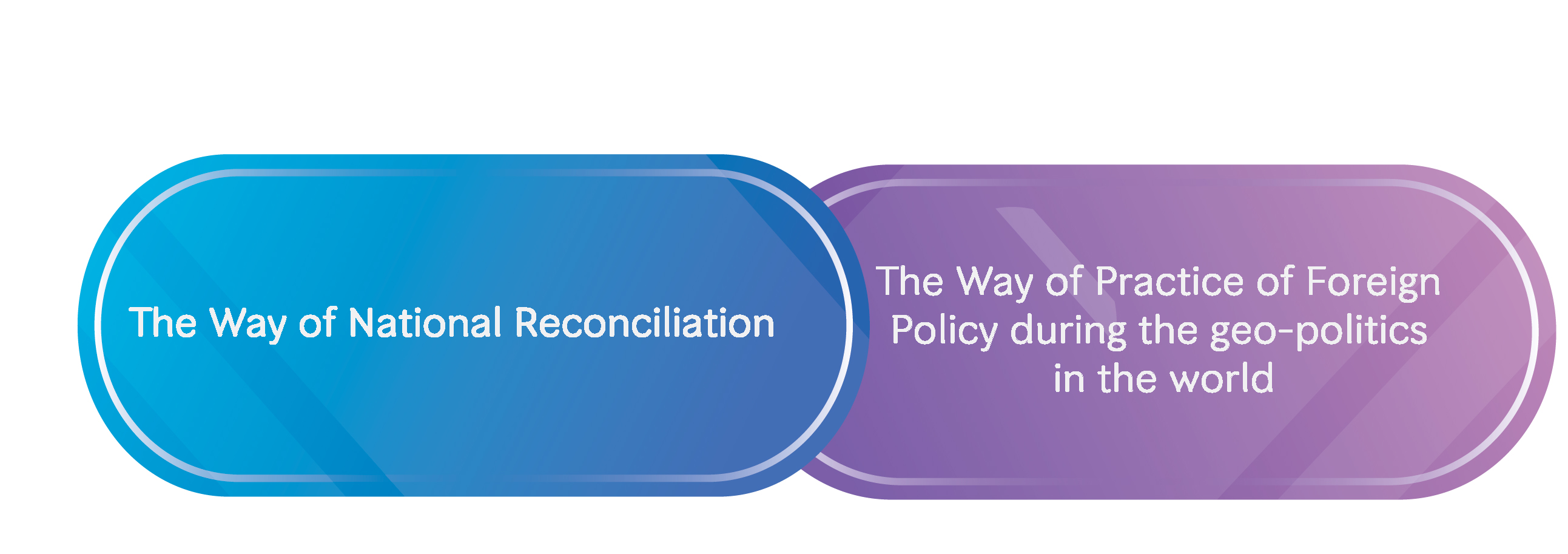The Concept of the Political Philosophy of King Norodom Sihanouk
Main Article Content
Abstract
The purposes of this research were 1) to study the concepts of political philosophy, 2) to explore the political philosophy of King Norodom Sihanouk, and 3) to analyze King Norodom Sihanouk's political philosophy. The research is document research and applied Philosophy abased, utilizing primary and secondary academic documents and related research works, with analysis conducted through inductive reasoning.
The results revealed that:
1. The concept of political philosophy, influenced by Socrates, Plato, and
Aristotle, showcases the relationship between individuals and state power in terms of freedom, equality, and justice, aiming for the citizens' peace and happiness.
2. King Norodom Sihanouk's political concepts, integrating Buddhist teachings, the Dasa Raja Dhamma (Ten Royal Virtues), Brahmavihāra, and Brahmanism principles, Raja Dhamma aligned with Cambodian culture and beliefs, were applied in governance. This adaptation in governance made him a beloved monarch and was acclaimed as a "Righteous King". In practical way, King Norodom Sihanouk's political philosophy blends traditional Cambodian monarchy, Buddhism, and modern nationalism. He emphasizes Cambodian sovereignty, neutrality during the Cold War, and balancing monarchy and republican aspirations. Sihanouk's leadership style is rooted in paternalistic principles, Buddhist ethics, and the vision of Sangkum Reastr Niyum (People's Socialist Community) as a unique political experiment in Cambodia.
Article Details

This work is licensed under a Creative Commons Attribution-NonCommercial-NoDerivatives 4.0 International License.
เพื่อให้เป็นไปตามกฎหมายลิขสิทธิ์ ผู้นิพนธ์ทุกท่านต้องลงลายมือชื่อในแบบฟอร์มใบมอบลิขสิทธิ์บทความ ให้แก่วารสารฯ พร้อมกับบทความต้นฉบับที่ได้แก้ไขครั้งสุดท้าย นอกจากนี้ ผู้นิพนธ์ทุกท่านต้องยืนยันว่าบทความ ต้นฉบับที่ส่งมาตีพิมพ์นั้น ได้ส่งมาตีพิมพ์เฉพาะในวารสาร วิชาการธรรม ทรรศน์ เพียงแห่งเดียวเท่านั้น หากมีการใช้ ภาพหรือตารางของผู้นิพนธ์อื่นที่ปรากฏในสิ่งตีพิมพ์อื่นมาแล้ว ผู้นิพนธ์ต้องขออนุญาตเจ้าของลิขสิทธิ์ก่อน พร้อมทั้ง แสดงหนังสือที่ได้รับการยินยอมต่อบรรณาธิการ ก่อนที่บทความจะได้รับการตีพิมพ์References
BBC News. (2012). Cambodia former king Norodom Sihanouk dies aged 89. Retrieved from https://www.bbc.com/news/world-asia-19943963
Chandler, D. P. (1991). The Tragedy of Cambodian History: Politics, War, and Revolution since 1945. New Haven: Yale University Press.
Chantrabot, R. (2017). The Khmer Republic: 1970-1975. Phnom Penh: Camed Business.
Coedès, G. (1968). The Indianized States of Southeast Asia. Translated by Susan Brown Cowing. Honolulu: University of Hawaii Press.
Findlay, T. (1995). Cambodia the Legacy and Lessons of UNTAC. Great Clarendon Street: Oxford University Press.
Findlay, T. (1995). The Legacy and Lessons of UNTAC. Oxord: Oxford University Press.
Harris, I. (1999). Buddhism and Politics in Twentieth-Centery Asia. New York: Continuum.
Harris, I. (2008). Cambodian Buddhism: History and Practice. Honolulu: University of Hawaii Press.
Higham, C. (2001). The Civilization of Angkor. Berkeley: University of Callifornia Press.
Jeldres, J. A. (2003). The Royal House of Cambodia. Phnom Penh: Monument Books.
Kulke, H. (1993). Kings and Cults: State Formation and Legitimation in India and Southeast Asia. Delhi: Manohar Publisher.
Wickersham, A. (2019). An Enigma to Washington: The Political Ideology of Cambodia’s Norodom Sihanouk (1945-1970). Footnotes: A Journal of History, 3, 119-129.

